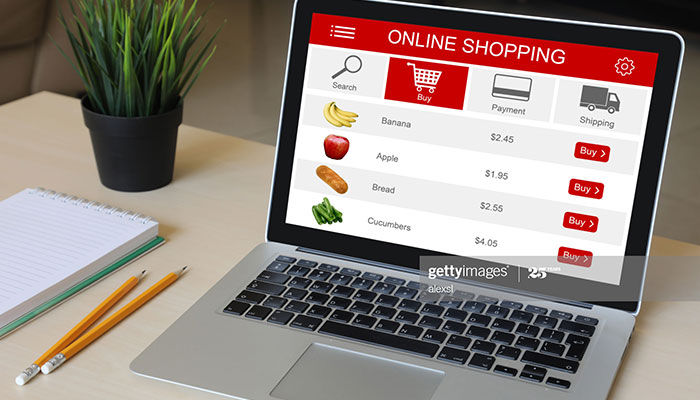Coronavirus has brought about structural shifts in the lives of Australians, particularly when it comes to our increased reliance on online models, whether they be for shopping, working from home, online learning or communicating with family and friends.

This change in behaviour patterns can be defined as ‘The Great Substitution Effect (GSE) of 2020’.
Key industries in the nation’s capital cities such as retail, tourism, international tertiary education, and financial and professional services are all being impacted by the lockdown brought about by the coronavirus outbreak.
Economic headwinds
The resulting lifestyle changes and economic headwinds Australians are experiencing may have some permanent impact on consumer behaviour, even once the restrictions are lifted and the economic downturn has reversed.
The structural effect of travel restrictions is having an obvious negative impact on tourism and international education; the economic slowdown and increase in unemployment is having a negative impact on retail due to reduced economic activity and reduced incomes; and the change in lifestyle, at both work and at home, is driving the substitution effect towards some industries. For instance, the information technology sector is experiencing a boost which could prove beneficial for tech start-ups.
This may have some permanent impact on the vibrancy of our cities as we spend more of our time at home compared with our pre-COVID-19 existence.
The capital cities’ entertainment industry is certainly being affected with concerts, theatre, cinema, festivals and the like all being cancelled or postponed. The Australian Bureau of Statistics says 53 per cent of small businesses in arts and recreation have now closed. The ABS' classification of arts and recreation does not include tourism, but it does include creative and performing arts, gambling, heritage, as well as fitness, recreation and sports.
The structural effect of public health policy has seen most entertainment venues close or operate under heavy restrictions; the income effect is seeing a reduction in spending in this sector which is considered a luxury and not a necessity by most consumers; and the substitution effect is leading to consumers spending their leisure time at home.
- Home learning shock: what happened to the good old days?
- Rare figurines uncovered at lost biblical city
Consumers may find some benefit, safety and comfort in their new lifestyle habits which may not completely reverse post-COVID-19. In other words, all of this may have some permanent impact on the vibrancy of our cities as we spend more of our time at home compared with our pre-COVID-19 existence.

Sea change: the way we live our day-to-day lives has forever changed after a mass shift towards online models of business as well as the way we work, says Dr Prashan Karunaratne from the Macquarie Business School.
The pandemic has accelerated the move towards online business models, over brick-and-mortar. Dining out may be substituted by Zoom gatherings in homes – including after-work drinks after working from home – and going out for a movie may be substituted by a streaming service.
New perspectives
From a supplier’s perspective, previous concerns about an online business model will mostly be laid to rest as they are essentially forced to rely on this channel. After experiencing the benefits first-hand, it is possible that current practices could continue post-COVID-19.
Furthermore, now that online business models have been established, at an additional cost, suppliers may want to exploit economies of scale for the investments they have made in the online space and reap the benefits post-COVID-19.
From a customer’s perspective, previous apprehensions about online retail could also be laid to rest as they have been forced to rely on this platform.
Given these unusual times, consumers are more likely to see the benefits rather than the drawbacks in new ways of doing things, and new behaviour patterns such as working from home could continue post-COVID-19.
Consumers too will want to exploit economies of scale for the investments that they have now made such as workers who have invested in technology and equipment to work from home.

Behaviours that emerge in the post-COVID-19 world will likely impact the renewed vibrancy of our capital cities as both demand and supply feed into a structural shift favouring online models as part of the GSE of 2020.
Dr Prashan Karunaratne, is a lecturer at the Department of Actuarial Studies and Business Analytics at the Macquarie Business School.



